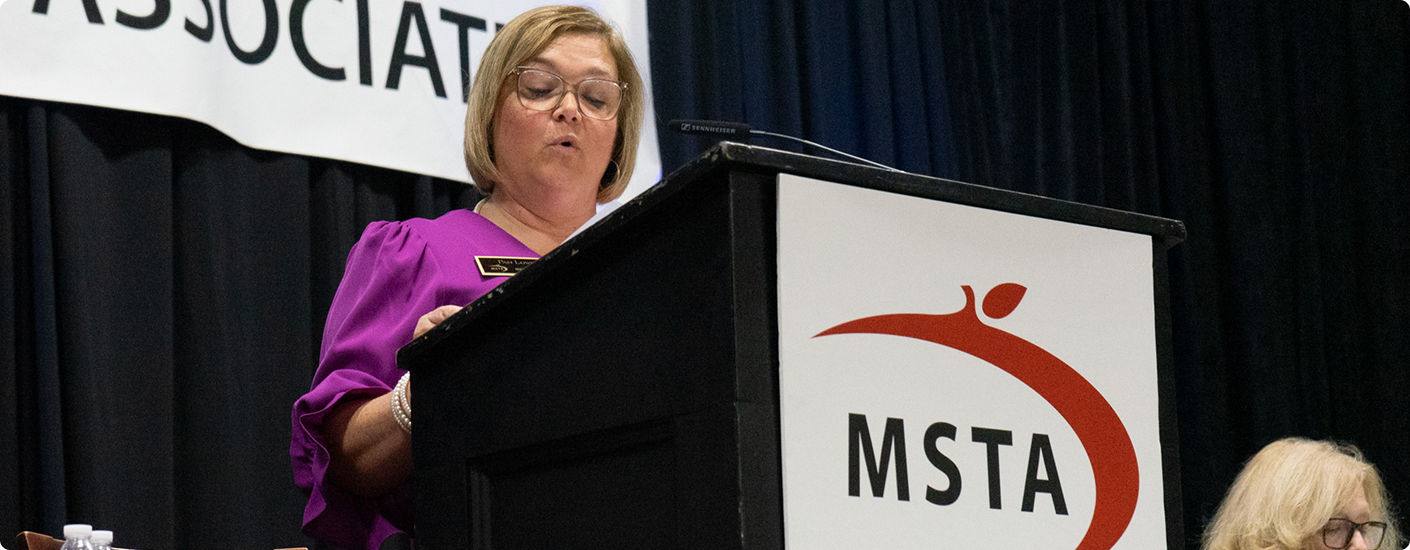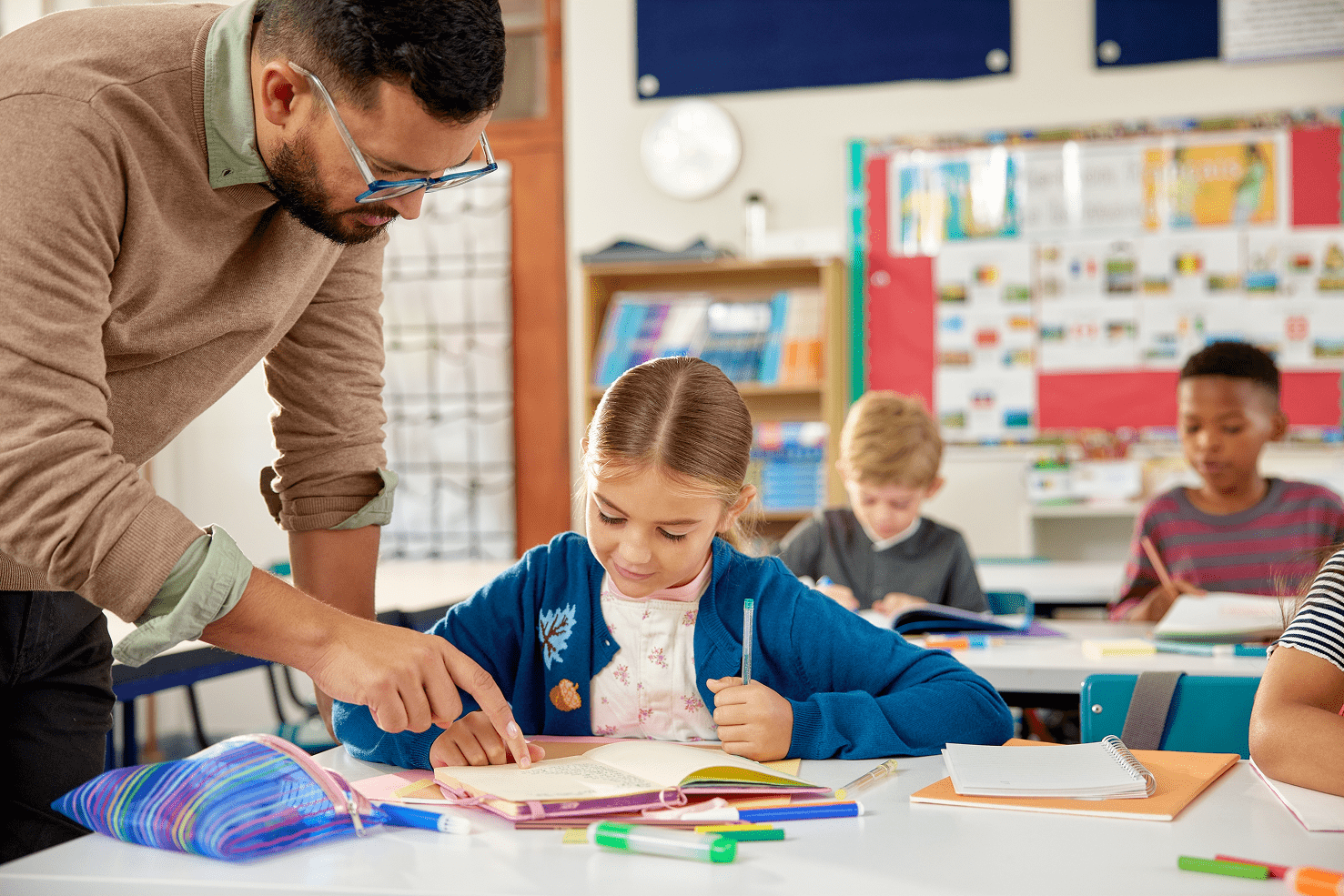Professional Learning Workshops

MSTA provides relevant, high quality professional learning that can be customized to support and meet your needs. MSTA workshops align to the Learning Forward Standards for professional learning and Missouri Teacher Standards. Our dynamic in-house presenters are subject-matter experts available to facilitate your professional development needs.
Price:
Early Dismissal (1-1.5 hours): $250 + travel
½ Day Workshops: $500 + travel
Full Day Workshops: $750 + travel
To schedule a workshop or presentation, contact the Professional Learning Department at professional_learning@msta.org or 800-392-0532.
Classroom Management
Classroom Management
Effectively managing a classroom of energetic students can be a challenge and is a topic many teachers desire tips and strategies for improving upon. There is a direct correlation between time management and classroom management. Attendees will gain a better understanding of the importance of ‘bell-to-bell’ class structure. This session will explore the key components of classroom management, explain the need for well-communicated routines and procedures and provide tips and strategies to maintain a well-managed classroom.
For Diverse Learners
They Don’t All Learn the Same Way
Participants in this workshop will receive an overview of differentiated instruction. Goals of DI and ways to teach will be addressed as well as a basic understanding of multiple intelligences and their impact on DI. Teachers will leave with a better understanding of DI and strategies to incorporate in their classrooms.
A Framework for Understanding Poverty
Learn how being under-resourced impacts learning, work habits, and decision making. Spend a day learning the “hidden rules” of poverty, middle class, and wealth; intervention strategies to use with poverty-related behaviors; and key points to remember about poverty. Those of us in education know that education is a “gift.” To ensure this “gift” is understood and valued by students from poverty, let’s develop a better understanding of the world of poverty through practical, real-world strategies to help your students succeed.
Social Emotional Learning: As Easy as ABC and 1, 2, 3
Focusing on Social Emotional Learning, or SEL, is not adding one more thing to your plate-it is your plate. SEL can serve as the foundation of all work that occurs in the classroom. This training will provide a basic understanding of how to create an environment that meets the social, emotional, and academic needs of students. Participants will learn the ABCs of a positive learning environment as well as the three signature practices of a lesson that promotes social emotional learning for all. These are all small changes to your current instruction that will make a big difference!
Trauma Aware
School personnel are required to adapt to meet student’s needs in order to optimize student achievement. But what if you are not aware of the greatest impact on student learning: trauma? In this workshop, participants become trauma-aware and learn how trauma affects brain development. This change in mindset will lead to developing an environment sensitive to trauma. A student’s negative life experiences are recognized to create an environment that combines learning with building positive relationships. A trauma-sensitive mindset, whether it be implemented in a classroom or a school district, will create a culture sensitive to student’s needs and promote empathy toward students and colleagues.
Unlocking Your Super Power When Working With Students From Diverse Socio-Economic Levels
Schools today serve a socio-economically diverse population of students. Schools need superhero teachers ready to make a difference in the lives of students. Attendees will learn the key characteristics of the different socio-economic levels, as well as strategies and beliefs to impact students of all socio-economic levels. We will discuss the reality of teaching when serving under-resourced or privileged students and how to persevere through challenging times.
Teaching Methods
Project Based Learning
Transform your classroom instruction with this student-centered approach that engages students in authentic, real-world problems. Learn the design elements of true project based learning as well as how to align projects with standards that are currently being taught. Participants will work on shifting current lessons to include more design elements and will gradually work towards creating a project based unit for their classroom instruction.
Active Learning
Looking to create a meaningful way to increase student engagement and achievement for all students while building positive student relationships and classroom community? Learn the benefits of incorporating cooperative learning into your classroom and walk away with strategies you can implement tomorrow!
Using STEM to Leverage Authentic Learning
Engage in activities that utilize the engineering design process while making learning relevant to your students using a cross curricular approach. While the ultimate goal is for students to eventually creatively solve real-world problems, learn how to engage students in design challenges that will promote community in the classroom and eventually extend beyond the walls of the school.
Tech Tips and Tricks
Tech-enhanced Learning with Google
Learn how to use the power of Google tools to enhance classroom instruction. Participants will engage in activities to learn more about tools such as Google Slides, Drawings, Sites and Jamboard. Participants will leave with activities created to implement into classroom instruction immediately as well as skills that will assist in becoming a Google Certified Educator.
Active Learning
Looking to create a meaningful way to increase student engagement and achievement for all students while building positive student relationships and classroom community? Learn the benefits of incorporating cooperative learning into your classroom and walk away with strategies you can implement tomorrow!
Your School Team
DISC
DISC Dimensions of Behavior provide a nonjudgmental language for exploring behavioral issues across four primary dimensions: Dominance, Influence, Steadiness and Conscientiousness. The profile presents a plan to help you understand yourself and others in a specific environment. The individual is the central focus as they heighten understanding of their behavioral profile and identify the environment most conducive to their success. At the same time, attendees learn about the differences of others and the environment they require for maximum productivity and teamwork in the organization.
Team Building
Does your faculty or CTA function as a group? If not, you may want to develop and implement team-building strategies. This is an interactive session that introduces proven team-building techniques.
Role of Professional Development Committee in Local PD
Learn about Missouri’s professional development standards and the statutory authority for professional development. Attention will be given to the roles and responsibility of the PDC, as well as how the committee works in conjunction with the school board and school leadership.
 Login
Login
 MSTA Regions
MSTA Regions
 Search
Search
 Contact Us
Contact Us




